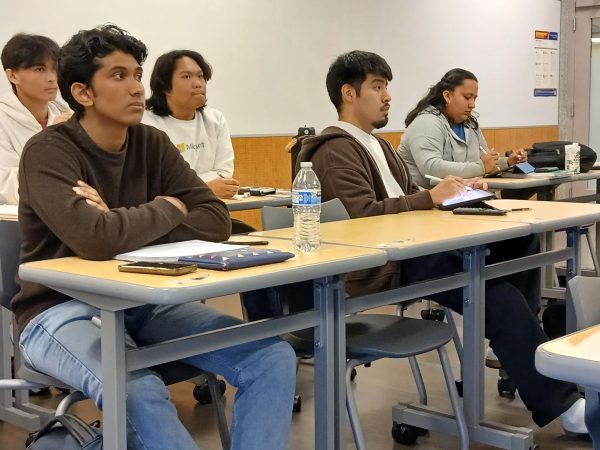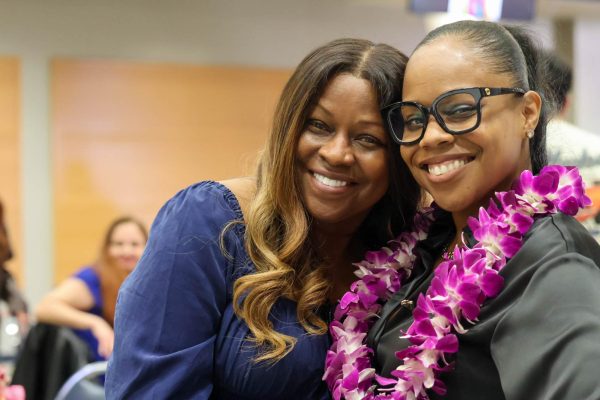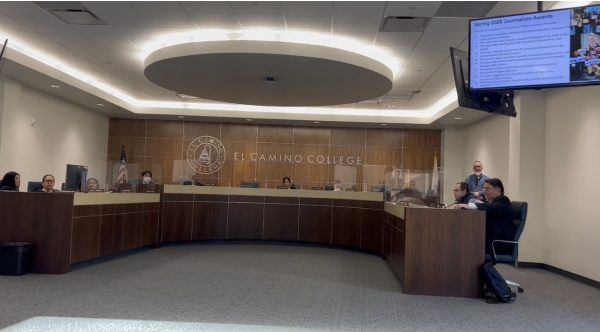Students with Autism Spectrum Disorder make up 12% of disabled student population at El Camino College
The number of students with autism pursuing post-secondary education is increasing.
He sits at his desk waiting for his 2 p.m. English 1A support class to begin. His direct support aid sits just a couple feet away.
His professor begins the class with announcements mentioning the possibility of an extension for the personality essay assignment.
Michael Murillo, 20, Spanish major raises his hand in favor of the extension on the assignment.
One of his biggest struggles is writing essays because of his Autism Spectrum Disorder (ASD).
Murillo was diagnosed with ASD, a learning disability, and ADHD as a toddler.
“I was a normal baby, but at the age of 3 I was diagnosed with autism,” Murillo said.
He was born in the Centinela Hospital in Inglewood, Ca, but said he grew up in Hawthorne, Ca.
Murillo is one of the hundreds of El Camino College students with disabilities that need extra support and accommodations to ensure that they have the same level of access to an education as every other student.
Murillo relies on services offered by EC’s Special Resource Center (SRC), a program designed to help students with disabilities make their way through college.
The SRC offers academic accommodations to all students with disabilities on campus including testing accommodations, note takers, separate counselors, priority registration, and in-class aids according to the SRC website.
“I need more support, that way I can do well on my classes, that way I don’t stress more,” he said.
Murillo requires extra time for testing, a direct service aid to accompany him to his classes and visits to the psychologist at the SRC.
“Well for college it’s really important because if I don’t get sufficient time for exams, I need to have more time, especially for reading that way I can get an audio recording of the reading,” Murillo said.
Students with ASD in community colleges
Community colleges began tracking the number of students with Autism Spectrum Disorder (ASD) in the Disabled Student Program Services (DSPS) three years ago in fall 2016. Students with ASD made up an average of 11.75% of students with disabilities at El Camino College between fall 2016 and spring 2018 according to the California Community Colleges Chancellor’s Office Data Mart.
EC has the highest average of students with ASD enrolled compared to Long Beach City College, Rio Hondo College, Cerritos College, and Santa Monica College according to the California Community Colleges Chancellor’s Office Data Mart.
Although the total amount of students with disabilities at EC is decreasing, the number of students with ASD is actually increasing.
In data reviewed by The Union, it is clear that in the last three years more students with ASD are pursuing post-secondary education.
About 17,000 American adults with autism pursue a post-secondary education right after high school every year, according to Autism Speaks, an organization that advocates and sponsors research for autism.
“Because we are seeing more and more students on the spectrum, there is now a disability category that’s been assigned,” director of EC’s SRC Gary Greco said.
The Chancellor’s Office is in charge of distributing the yearly DSPS budgets to community colleges.
The budget for the DSPS at EC is managed by Greco.
The DSPS budget is “based on our reporting of our students based on the population and the size will determine the allocation that the Chancellor’s Office will provide for us, so I will work within what they give me in my budget here to provide accommodations and services,” Greco said.
Although Greco states that the amount of money received for the EC DSPS budget is based on the size of the SRC population, the opposite has been happening in the past five years.
EC’s budget for the DSPS consistently increased from the academic year of 2013 through 2016 by an average of 25% even though the disabled student population stayed constant within those years.
Although community colleges have only recently begun tracking the number of students with ASD, “accommodations for them have always been made,” Greco said.
The type of assistance that is needed by students with autism varies from person to person and depends on the proactiveness of the student to request accommodations, but sometimes, schools fail to meet every accommodation needed by some students, Tracy Jalaba an assistant professor of clinical occupational therapy at USC told The Union.
“A lot of students that had diagnosis since childhood were getting service in high school and that kind of happens automatically behind the scenes, whereas in college, they have to speak up for support services or accommodations,” Jalaba said.
Receiving extra support from outside organizations
Since his diagnosis, he has worked with regional centers to help accommodate not only his academic needs but his daily personal needs.
As soon as someone is diagnosed with ASD, caseworkers begin working on an individualized education program (IEP), a document that deciphers the strengths, weaknesses and the school’s plan to help the student, according to the Understood team at understood.org.
“They required IEP’s for middle school through high school to discuss about my academic goals that will happen later on in college,” Murillo said.
Murillo is able to have a direct service aid with him during his classes because of the new partnerships that EC is building with regional centers around the area.
He has been working with Family Adult Child Therapy (FACT) since August 2018 to ensure that he gets all the support necessary to succeed academically and to better his socialization skills.
Service professionals provide extra support that the SRC at El Camino does not provide, Greco said.
Murillo’s direct service aid, who did not want to be named, meets with him Monday through Thursday during his class times.
“He’s independent for the most part, I just work closely with him on his essays,” Murillo’s direct service aid said.
Murillo’s learning disability makes writing essays a difficult task for him because he is unable to structure sentences correctly, his direct service aid said.
He understands how to structure an essay, but he makes grammatical mistakes, so it is hard to understand what he is saying in his essays, Murillo’s direct service aid said.
Murillo failed two courses last semester because “the writing was too much,” Murillo said.
The SRC doesn’t offer direct tutoring for students with disabilities. Instead, it offers alternative suggestions to help students depending on their strengths and weaknesses in the subject, Learning Disability Specialist Tiffanie Lau said.
At EC, students are referred to the tutors offered by the different departments, while the Disabled Student Services Departments at Long Beach City College and Santa Monica College offer specialized tutoring for students with disabilities.
Murillo often stresses about getting his schoolwork done and studying for exams.
Murillo said he is advised to talk to the psychologist offered at the SRC or to go to the Health Center on campus whenever he is feeling stressed.
Socializing while on the spectrum
Socializing doesn’t come easy for people on the spectrum, including Murillo.
His biggest worry and fear when he meets new people is that they won’t fully understand what he is trying to say because it is hard for him to speak in complete sentences.
“Throughout my childhood I had several struggles with communicating [with] people because of my autism disability and I didn’t know how I looked like, I didn’t know if I was speaking correctly, probably my words are little bit vague so they probably got confused with what I was trying to say,” Murillo said.
An effective form of overcoming his fear of communicating with others is by drawing.
“I used to draw when I was a kid and when some students admired my drawings and decided they wanted to be my classmate friend,” he said.
Students with ASD succeeding in college
Although it is challenging for Murillo to socialize with others, he still describes himself as an extrovert in his personality essay.
Murillo enjoys being social and doing the different type of volunteer work that offered by Family, Adult and Child Therapies (FACT), an organization that provides services and programs designed specifically for every individual and their individual needs, he said.
Volunteer work includes helping at the Salvation Army, going to an “elderly home”, cleaning up trash, and working at thrift stores, Murillo said.
To Murillo, his extroverted personality type is what he said will ensure his success as an ESL teacher in the future, but he knows that to get there he needs to graduate from college.
His parents migrated from El Salvador before he was born in search of a better life for their children and weren’t able to obtain an education. As a result, Murillo always knew that he would get a college education.
Ensuring that students with autism succeed in college has a lot to do with not only the accommodations and resources provided by the college campus but also spreading awareness about ASD and creating a campus culture that is more accepting and inclusive, Jalaba said.
El Camino College does a good job at accommodating students, but Murillo said that “the one accommodation they should offer, is help with essays for students with disabilities.”
Q&A about ASD with Assistant Professor of Clinical Occupational Therapy at USC Tracy Jalaba
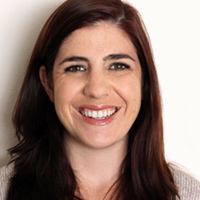
Q: What is Autism Spectrum Disorder (ASD)?
A: “Autism is a neurological condition that can be defined in a few different ways.”
Q: How is autism spectrum disorder diagnosed?
A: “Through the DSM, basically, it’s looking at deficits in social skills or social communication and aspects of repetitive behaviors or highly focused interests. There’s typically sensory processing deficits that are associated and those are kind of some of the small criteria that are looked at when people are being diagnosed.”
Q: Why isn’t Asperger syndrome a diagnosis anymore?
A: “The Asperger syndrome diagnosis is no longer a diagnosis because of the efforts made in the last 5-6 years of moving autism towards the spectrum view because its the same diagnostic as someone who has autism, it’s just maybe they’re higher functioning”
Q: Why is it important for college campuses to have counselors that are trained to work with students with autism?
A: “A lot of counseling involves retrospection, they use analogies to describe ideas and those are things that can be more challenging for people on the spectrum. Other mental health or healthcare professionals, a lot of the time, they don’t have comfort working with these students, in the sense that they feel confident that they know how to meet their needs in the same way as they would maybe other students that have anxiety or depression diagnosis”.
EC’s DSPS student population compared to the annual DSPS budget.
Adults with ASD are more at risk of suicide
Suicide among people with ASD has not been researched enough, so it still is not clear what the risk markers are, but it is clear that people with ASD are at a higher risk of having suicidal thoughts and behaviors than the general public, according to “Risk markers for suicidality in autistic adults”, an article written by four researchers from the UK in July 2018.
A study conducted in Sweden in 2016 found that the likeliness of a person with autism dying by suicide is 31% while the likeliness of a person from the general population is .04%.
Suicide prevention resources:
National Suicide Prevention Lifeline
1-800-273-8255(available 24-hours every day)
The Trevor Project, an LGBT crisis intervention and suicide prevention hotline.
1-866-488-7386 (available 24/7)
For hard of hearing, contact Lifeline via TTY by calling 800-799-4889.(available 24/7)


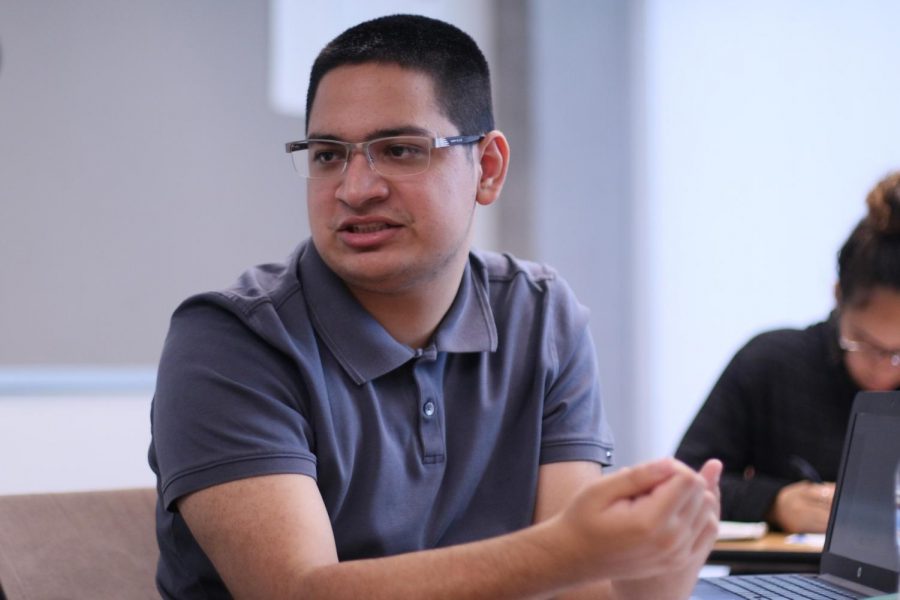
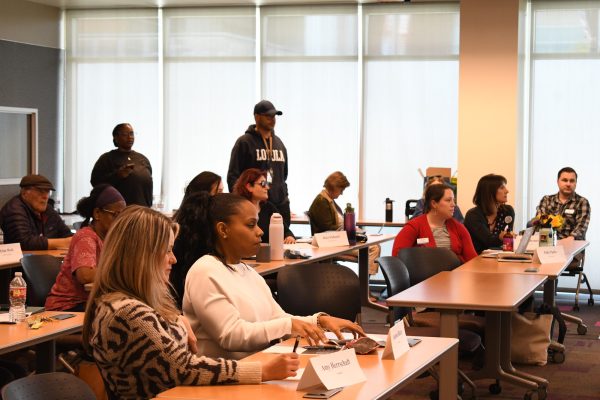
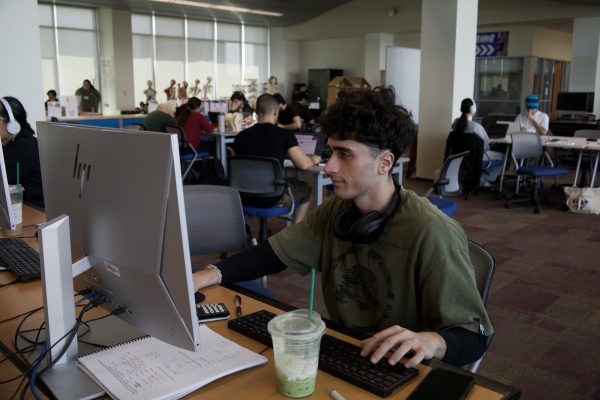
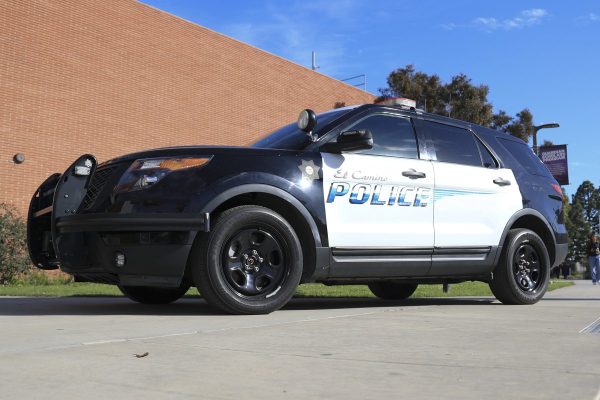
![Physics and astronomy professor Susan Stolovy presents astronomical news and updates to attendees at the first planetarium show of the semester at El Camino College on Friday, March 28. Prior to becoming a professor at ECC, Stolovy completed her doctorate in physics and worked as an astrophysicist for NASA and the California Institute of Technology on spacecraft missions. "[I'm] still very tuned into what's going on in the world of research as well, and I hope to bring a little bit of my experience into the classroom," Stolovy said. (Nikki Yunker | The Union)](https://eccunion.com/wp-content/uploads/2025/03/planetarium-Made-with-Clipchamp-3-frame-at-0m28s-600x338.jpg)
